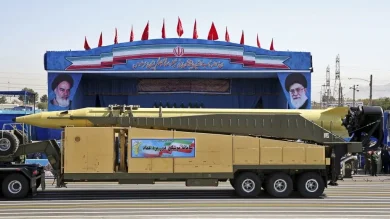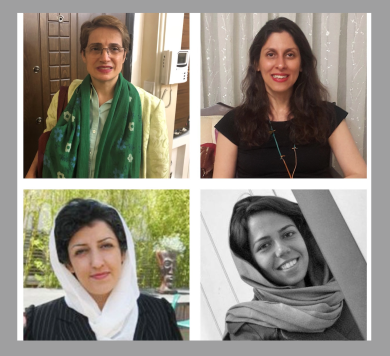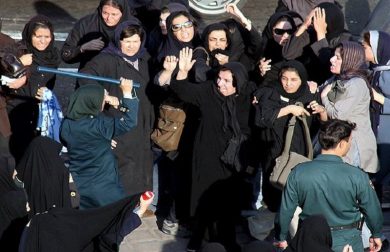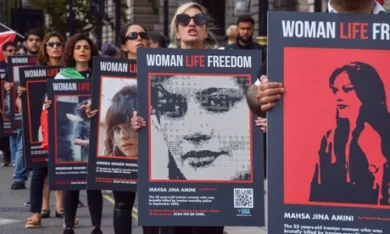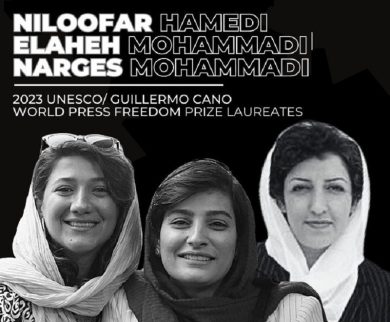The Islamic Revolutionary Guard Corps (IRGC), a powerful branch of Iran’s armed forces, has become a central player in the regime’s domestic repression, proxy wars, and support for terrorist activities globally. Designating the IRGC as a terrorist organization is not merely symbolic; it carries significant legal, economic, and diplomatic consequences. This article explores the purpose, implications, criticisms, and impact of such a designation, and why it matters for global security, human rights, and regional stability.
1. Understanding the IRGC’s Role and Reach
The IRGC was established in 1979 to protect Iran’s Islamic Revolution and its leadership. Over the years, it has grown into a military, economic, and political powerhouse with extensive influence both inside and outside of Iran.
A. Military and Proxy Operations
The IRGC’s Quds Force, its elite external operations arm, directs Iran’s proxy networks across the Middle East. It provides training, funding, and weapons to groups such as:
• Hezbollah in Lebanon
• Hamas and Palestinian Islamic Jihad in Gaza
• Shia militias in Iraq, Syria, and Yemen
These proxies engage in terrorist attacks, armed conflicts, and regional destabilization, serving Iran’s geopolitical ambitions.
B. Domestic Repression
Domestically, the IRGC plays a major role in suppressing dissent. It controls security forces, intelligence services, and cyber units responsible for:
• Cracking down on protests
• Arresting activists, journalists, and political dissidents
• Enforcing internet censorship and spreading propaganda
C. Economic Control
The IRGC holds vast economic power, controlling key industries such as oil, construction, and telecommunications. It uses this wealth to fund military operations and repressive activities.
2. What Is a Terrorist Organization Designation?
A terrorist designation formally identifies an organization as involved in acts of terrorism or support for terrorism. This status allows governments to implement legal and financial measures to limit the group’s operations.
A. U.S. Designation of the IRGC
In 2019, the United States became the first country to designate the IRGC as a Foreign Terrorist Organization (FTO). This move subjected the IRGC to:
• Asset freezes and restrictions on financial transactions
• Criminal penalties for individuals providing material support to the IRGC
• Restrictions on travel and immigration for those affiliated with the IRGC
B. Other Countries’ Actions
• Canada has imposed restrictions on IRGC officials and entities, though it has not yet fully designated the IRGC as a terrorist organization.
• The United Kingdom and European Union have sanctioned individual members of the IRGC but have not applied a full terrorist designation.
3. The Objectives of Designating the IRGC
A. Disrupting Terrorist Financing
By targeting financial networks, a terrorist designation seeks to:
• Prevent the IRGC from accessing international banking systems.
• Limit its ability to fund proxy groups and military operations.
B. Weakening the IRGC’s Influence
The designation aims to reduce the IRGC’s ability to:
• Recruit and train foreign fighters.
• Smuggle arms and resources to its proxies.
• Expand covert operations in other countries.
C. Demonstrating International Commitment to Human Rights
Labeling the IRGC as a terrorist organization underscores the global community’s rejection of state-sponsored violence and repression.
4. Criticisms and Controversies
Despite the rationale behind the designation, it has sparked debate and criticism from some experts and policymakers.
A. Impact on Diplomacy
• Critics argue that designating the IRGC complicates diplomatic negotiations with Iran, particularly regarding its nuclear program.
• Some fear that the designation may escalate tensions, prompting retaliation against foreign diplomats or military personnel.
B. Economic Consequences for Iranian Civilians
• Sanctions linked to the terrorist designation can exacerbate economic hardships for ordinary Iranians by limiting trade and foreign investment.
• Critics emphasize the need for targeted sanctions that focus on the IRGC’s leadership without harming civilians.
C. Risk of Retaliation
• The IRGC has threatened retaliatory attacks against countries that impose severe sanctions or designations.
• Foreign military bases, embassies, and civilians could become targets of proxy attacks.
5. The Benefits of a Terrorist Designation
A. Legal and Financial Measures
The terrorist designation enables governments to:
• Prosecute individuals or companies providing financial support to the IRGC.
• Seize assets linked to IRGC-affiliated organizations.
• Increase intelligence-sharing and counterterrorism cooperation among allies.
B. Moral and Symbolic Impact
The designation sends a message that the international community holds the IRGC accountable for:
• Supporting terrorist groups.
• Violating human rights through repression and violence.
• Destabilizing regional peace.
6. Supporting Iranian Activists and Civil Society
Many Iranian activists and diaspora communities support the terrorist designation, viewing it as a tool to:
• Weaken the IRGC’s domestic power.
• Provide moral support to those fighting for freedom and human rights.
• Isolate the regime and pressure it to reform.
However, activists also emphasize the importance of humanitarian support and sanctions exemptions for essential goods, such as medicine and food.
7. The Role of Global Solidarity
A. International Cooperation
Designating the IRGC requires multilateral action to be effective. Countries should:
• Coordinate sanctions enforcement to close financial loopholes.
• Share intelligence on IRGC activities and front companies.
• Strengthen support for independent media and human rights organizations.
B. Amplifying Activist Voices
Global solidarity efforts can amplify the voices of Iranian activists by:
• Raising awareness of human rights violations.
• Advocating for UN investigations into crimes against humanity committed by the IRGC.
• Providing digital tools to help activists evade surveillance and censorship.
Conclusion
Designating the IRGC as a terrorist organization is a critical step in countering terrorism, proxy wars, and human rights abuses. While challenges remain, global cooperation, targeted sanctions, and support for Iranian civil society are essential to limiting the IRGC’s power. The designation sends a strong message: those who commit violence and repression will face international accountability.
Join Our Newsletter!
Stay informed with the latest updates, news, and ways to take action in the fight for justice and global security. Sign up now to get updates delivered straight to your inbox!

